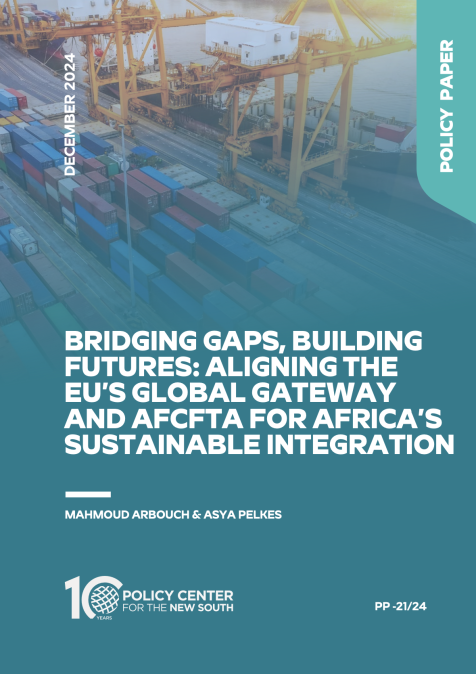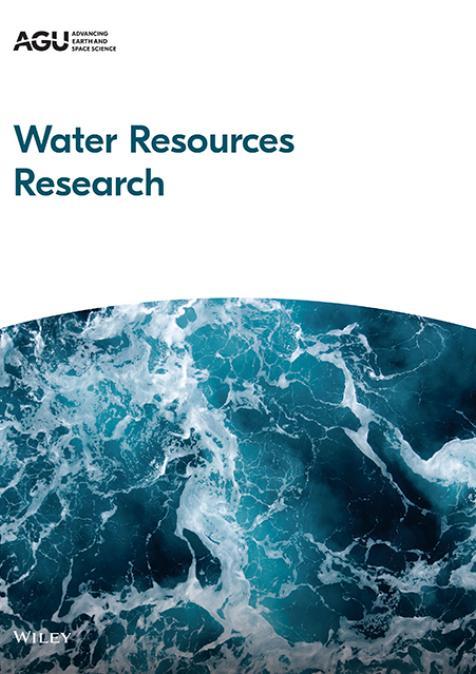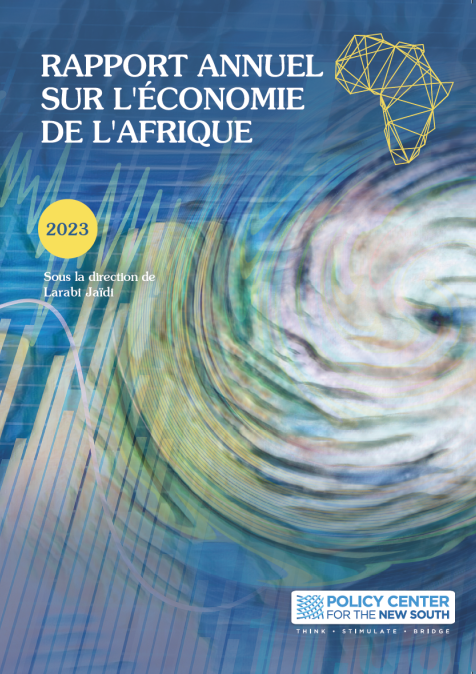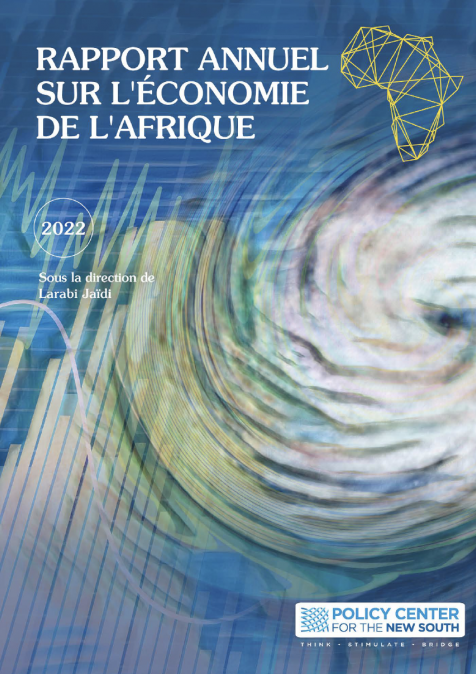Publications /
Opinion
Incomes on the southern shores of the Mediterranean are about one-fifth to one-third of those on the northern shore, ratios that have not changed much over the last generation. This was not supposed to happen. The Barcelona Process, set up in 1995 as a partnership between the European Union and eastern and southern Mediterranean countries to promote regional growth and stability, economic integration through trade, investment, and orderly migration flows, was expected to boost incomes in the south. A sober World Bank Report, published in December 2020, shows how today—despite many trade agreements and numerous development aid programs—the southern rim of the Mediterranean remains the least-integrated, least-stable and slowest growing regions of the world.
The failure of economic integration in the Mediterranean region is ironic, as the Mediterranean has been a hub of world trade since at least the time of the Phoenicians. For the longest time there were no nation states along the Mediterranean rim to impose tariffs and raise barriers, only cities dependent on trade, or empires that ensured trade remained open within their borders. Yet, 3000 years after the Phoenicians sailed and 900 years after Venice competed with Genoa for markets, Mediterranean trade is impeded by numerous barriers, comprehensively described in the World Bank report. Most of the trade barriers consist of discriminatory regulations; many are nontransparent, others are down to poor logistics and inadequate infrastructure. Tariffs have come down, but they still impede trade, as do rules of origin, industrial subsidies, and huge agricultural subsidies in Europe.
But impediments to trade are clearly not the whole story in the disappointing economic performance of the Mediterranean rim. For one thing, though across the Mediterranean trade continues to be impeded, trade is much more buoyant and freer than it was in 1995. The Mediterranean’s dismal growth performance has occurred despite considerable improvement in trade and investment flows. Obviously, this has not been helped by the fact that the northern rim of the Great Sea has been the world’s slowest growing region, partly owing to the euro crisis that devastated Greece, Italy, and Spain.
The combination of increased trade and poor growth, and the failure of the south to converge to the north, leads one to conclude that, first, however beneficial freer trade and its habitual companion foreign investment might be, there is a limit to what they can achieve. Second, domestic policies play the central role.
Morocco is a good example. Morocco has done better than the rest of the region and is the only country (with Tunisia) covered in the World Bank report that shows a modest degree of convergence with the north. A 30-year-old Moroccan is about twice as well off as her parents were when she was born. But not three to ten times better, which is the case for many people in Asia, and was the kind of growth expectation many had when Morocco embarked on freer trade and investment policies in the 1980s.
As Rim Berahab and I have shown, Morocco has seen big benefits from its trade agreements and the unilateral liberalization it pursued for both trade and foreign investment. Its most important agreement, with the European Union, came into force in 2000. The agreement was a relatively narrow and shallow one, and one-sided, since it required manufacturing liberalization in Morocco, while manufacturing was already free of tariffs in the EU. The agreement was subsequently extended to agriculture but only partially. Despite these limitations, Morocco has shown solid export performance, both in the EU and on third markets, and Moroccan consumers have seen lower import prices, while manufacturers have seen improved access to parts and components—for example in the new auto manufacturing industry. FDI has increased to about 3% of GDP, some of it in manufacturing, enabling integration into global value chains. Other investment has gone into construction and services. Morocco runs a large bilateral goods deficit with the EU, but remittances and tourism normally compensate for much of this, and the overall macro picture of Morocco (external and internal balances, debt, inflation, etc.) is quite sound.
Compared to other countries in the Mediterranean region, Morocco did not do badly, but why have outcomes not been better? Some of the explanation is external. In addition to slow growth in Europe, the arrival of new competitors from Eastern Europe and from Asia, especially in the critical garments sector with Multi Fiber Agreement quotas abandoned, hit some of Morocco’s most important exports. The refugee crisis, draconian new restrictions on immigration, and the instability caused across the region by the Arab Spring and its aftermath all contributed to dampening growth.
But the more important explanations for disappointing outcomes are domestic. Many of the problems highlighted in the World Bank’s review of domestic policies in the Mediterranean region are familiar to Moroccans. Four issues are especially pertinent: the failure of the education system and underutilization of the young and of women, low contestability in many sectors of the economy (‘crony capitalism’), high and rising inequality, and a structural anti-export bias.
The first two phenomena are well known and require no elaboration here. High inequality hurts growth because it leads to underutilization of the talents of the poor and marginalized including many women. High inequality feeds social and political tensions, which cause private investors to be cautious and policymakers to avoid difficult reforms.
The Moroccan economy’s anti-export bias is due to a combination of a fixed exchange rate (only gradually made more flexible in recent years), large public investment, and controls on outward capital. This combination results in large investment in the non-traded sectors of the economy, such as construction, and overvaluation of the real exchange rate. Large remittances contribute to the high exchange rate and make agriculture and manufacturing less competitive than they would otherwise be.
The failure to converge across the Mediterranean basin has multiple causes and there are no easy solutions. In Morocco, high dividends would be yielded if more attention were paid to the four domestic impediments to growth, while sustaining the policy of economic integration with the world. The international institutions that work to help Morocco, including the World Bank, the International Monetary Fund, and the European aid agencies, should abandon the political obsequiousness which dominates their policy dialogue with Moroccan authorities. They need to find ways to create stronger incentives for Morocco to reform, as they did for the rapidly converging nations of Eastern Europe.
The Moroccan regime has shown that it is capable of adapting. It navigated through the Arab Spring better than other countries of the region, and it has done a remarkable job in coping with both the social and medical repercussions of the pandemic. But it has yet to rise to the challenge of accelerating economic growth and meeting the expectations of Moroccans for jobs and living standards which come closer to those available on the shores nearby.
The opinions expressed in this article belong to the author.










